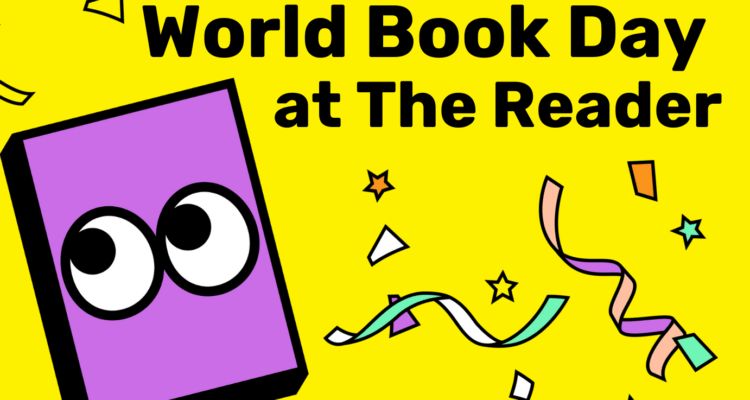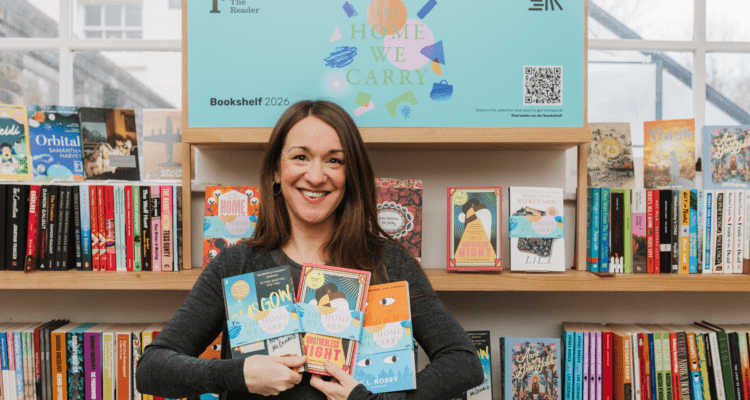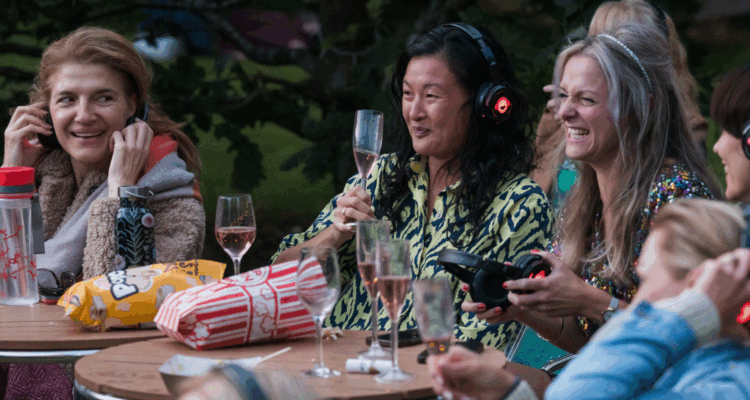Shared Reading for Healthy Communities: Shared Reading and Chronic Pain
Last week on The Reader Online we started our series of highlights from The Reader Organisation's fourth National Conference, Shared Reading for Healthy Communities, kicking things off with a special Reader Story from the day.
This week we're diving into the day's seminars, specifically our 'Healthy People' morning session. 'Shared reading in a clinical setting for people suffering from chronic pain' looked at the relationship between pain, shared reading and effects on patients. The seminar presented the preliminary findings of a multidisciplinary study investigating this, the first to collect date on the benefits of shared reading in the field of physical health.
One of the researchers, Dr Josie Billington, Deputy Director for Centre for Research into Reading,Information and Linguistic Systems (CRILS) at University of Liverpool, chaired the chronic pain seminar and recaps the session here:
 Andrew Jones, Consultant Anesthetist at Royal Liverpool and Broadgreen Hospitals, where he runs a pain clinic, led off the session by giving an account of pain (1) as it is medically conceived – ‘an unpleasant sensory and emotional experience associated with actual or potential tissue damage, or described in terms of such damage’; and (2) as it is humanly suffered - a subjective experience perceived directly only by the sufferer.
Andrew Jones, Consultant Anesthetist at Royal Liverpool and Broadgreen Hospitals, where he runs a pain clinic, led off the session by giving an account of pain (1) as it is medically conceived – ‘an unpleasant sensory and emotional experience associated with actual or potential tissue damage, or described in terms of such damage’; and (2) as it is humanly suffered - a subjective experience perceived directly only by the sufferer.
‘Pain is a multidimensional phenomenon that can be described by pain location, intensity, temporal aspects, quality, impact and meaning. Pain does not occur in isolation but in a specific human being in psycho-social, economic, and cultural contexts that influence the meaning, experience and verbal and non-verbal expression of pain.’
Andrew also explained in lay terms the pathways via which pain is registered in the brain and the tendency for it to become self-replicating, even, and especially perhaps, where there is no tissue damage or other physical cause. This is where, Andrew suggested, shared reading might have a role to play in activating alternative mental pathways: as well as in offering distraction from the pain, reading can stimulate fresh forms of attention in place of the habitually absorbed preoccupation with physical discomfort.
I then explained the background to the research study, which looks at the benefits of Get Into Reading in relation to physical health for the first time. The project arose from the relation between chronic pain and depression, depression being the subject of CRILS' earlier study and the focus of much of our current work.
CRILS is especially concerned with the capacity of fiction and poetry to enable emotional articulacy and consciousness in relation to personal trouble from a depth of reflection triggered by the power of the literary text. As Andrew had explained, pain is a complex experience that affects thought, mood, and behaviour and often leads to isolation, immobility, and drug dependence. Chronic pain resembles depression, and the relationship is intimate. Pain is depressing, and depression causes and intensifies pain. People with chronic pain have three times the average risk of developing psychiatric symptoms — usually mood or anxiety disorders — and depressed patients have three times the average risk of developing chronic pain. It is the 'overlap' between depression and chronic pain which makes our project intellectually compelling.
 Kate McDonnell, Quality Practice Manager at The Reader Organisation, has been running the reading group involved in the research, and gave a powerful sense of the reality of the reading group experience, in part through an account of responses to Maya Angelou’s poem ‘I Know Why the Caged Bird Sings’. For more than one participant, the poem resonated with their experience of being ‘locked inside pain’ – ‘pain is a prison’. There followed a discussion (fascinating for me) about how far such articulate recognition of the quality of pain, from inside the poem as it were, helped change the experience of that pain, inside the body.
Kate McDonnell, Quality Practice Manager at The Reader Organisation, has been running the reading group involved in the research, and gave a powerful sense of the reality of the reading group experience, in part through an account of responses to Maya Angelou’s poem ‘I Know Why the Caged Bird Sings’. For more than one participant, the poem resonated with their experience of being ‘locked inside pain’ – ‘pain is a prison’. There followed a discussion (fascinating for me) about how far such articulate recognition of the quality of pain, from inside the poem as it were, helped change the experience of that pain, inside the body.
Kate also demonstrated how high levels of concentrated attention were not only characteristic of the group, but demanded by it. Intellectually complex and emotionally powerful works which would not usually be tackled early in a newly constituted shared reading group – David Constantine’s ‘In Another Country’, Ray Carver’s ‘Cathedral’ – were necessary to compel immersed thinking in the literature, where mental effort would otherwise be consumed by pain. Most moving for me was the story of ‘Ken’ who said:
‘I used to be crying at night sometimes ...but now it’s given me a lift, I feel better and I can use the time better... to read instead’.
Find out more about our partnership with CRILS, current research projects - including A Literature-Based Intervention for Sufferers of Chronic Pain - and published reports on the Research section of our website, underneath What We Do and Why.
Earlier this week Dr Josie Billington spoke with our Literary Learning Manager Casi Dylan at the Culture, Health and Wellbeing International Conference in Bristol about literature providing models of thought in human feeling and offering a creative and collective mode of reading.
Lord Howarth of Newport also spoke at the CHW 2013 Conference about TRO in his keynote speech and how shared reading is 'a successful practice which will make an impact on our healthcare system and change the culture'. You can view Lord Howarth's keynote speech on the Culture, Health and Wellbeing Conference webcast: https://www.culturehealthwellbeing.public-i.tv/core/portal/webcast_interactive/107407 (click through to 47min 11 secs in)
Share
Related Articles

World Book Day® and The Reader celebrate the fun of reading
National reading charity World Book Day is partnering with Shared Reading charity The Reader for a fun-filled day in…

The Reader unveils new Bookshelf for 2026
The UK’s biggest Shared Reading charity today launches its 6th annual Reader Bookshelf - a carefully curated collection of stories, plays, and poems - at the start of the…

The Reader Cinema FAQ’s
If you were able to snap up tickets to our cinema programme, check below for any queries you might have…


